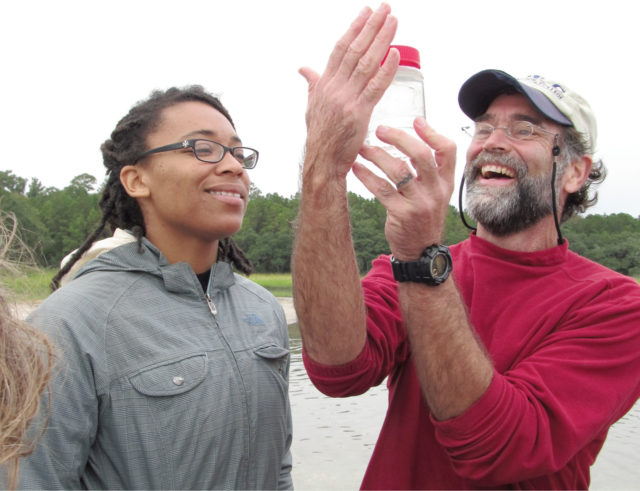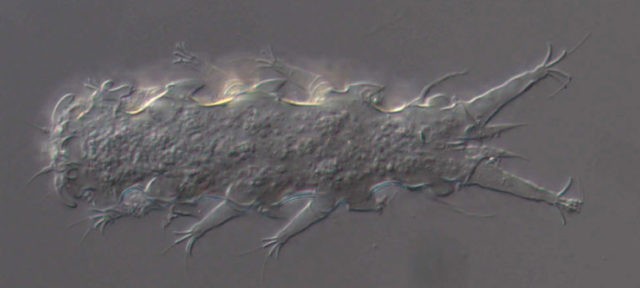
Warren Wilson College professor Paul Bartels is now a Fulbright scholar. Photo: Reggie Tidwell
What if someone suggested there was an animal that looks like a bear living in soil all over the world? And, by the way, it can bring itself back to life. It may sound like science-fiction, but a Warren Wilson College professor is one of the foremost authorities on this very real microscopic creature – the tardigrade, which is often called a “waterbear.” That expertise has now earned the biology professor, Paul Bartels, a coveted academic distinction as a Fulbright scholar.
“Fulbright recognizes academic expertise in a variety of subjects and makes that available to other countries,” Bartels said. “The program fosters intellectual exchanges between the United States and other nations. That’s the part that excites me the most about being a Fulbright Specialist. This program opens a funding window that allows people to work with colleagues all over the world.”
Through the Fulbright Specialist Program, Bartels will travel to Costa Rica to work on a project at the University of Costa Rica‘s Center for the Investigation of Marine and Limnological Science. He will collect tardigrade specimens from the Atlantic and Pacific coasts and conduct the first inventory of the animals in Costa Rica. In addition to work in the university’s lab, Bartels will deliver lectures and host workshops focused on his work.

Professor Paul Bartels, right, started working at Warren Wilson College in 1986. Photo: Diana Sisson/Warren Wilson College
“I’m delighted with Paul’s accomplishment,” said Paula Garrett, vice president for academic affairs and dean of Warren Wilson College. “I’ve watched his research grow, and, with it, the sparkle in his eye and his passion for sharing this research with students. Faculty scholarship is one of the marks of a great institution. Thanks to professors like Paul Bartels, Warren Wilson College proves schools of any size can make significant contributions to the world. Paul’s work is already globally recognized, but this trip will expand his notoriety to levels we are only beginning to understand.”
Bartels, who was recently awarded an Appalachian College Association Fellowship for his 2017-18 sabbatical, sees the Fulbright recognition as a significant opportunity for Warren Wilson College students.
“All professors at Warren Wilson College are required to participate in scholarship outside of their classroom duties. My research enlivens my teaching in almost every class I teach. I can use the connections formed through research collaborations to help students tackle unique in-class projects. We partner with organizations across the country, and undergraduates often co-author papers with me. I expect my new colleagues in Costa Rica will offer future students similar opportunities,” Bartels added.

The microscopic Stygarctus was discovered by Professor Paul Bartels and his students during a trip to South Carolina. Stygarctus is one of more than 1,200 species of tardigrades or “waterbears” in the world. Photo: Paul Bartels/Warren Wilson College
The Fulbright Specialist Program was launched in 2001 by the U.S. Department of State’s Bureau of Educational and Cultural Affairs. Unlike other Fulbright programs, the specialists embark on two- to six-week projects. Funding covers airfare, lodging and meals, among other benefits, for each Fulbright Specialist, according to the program’s website.